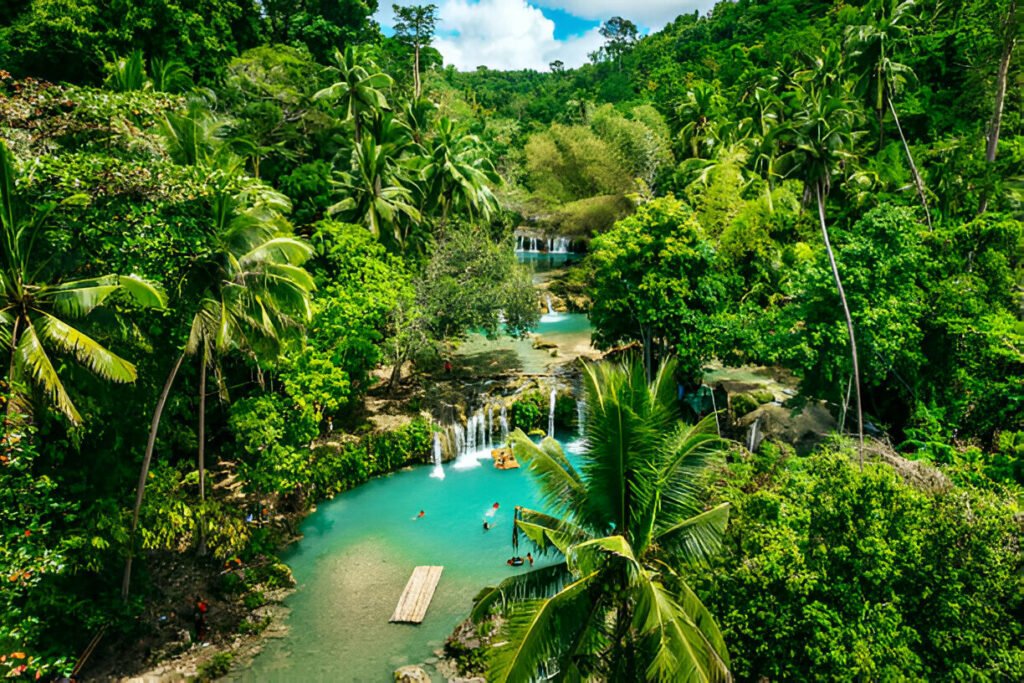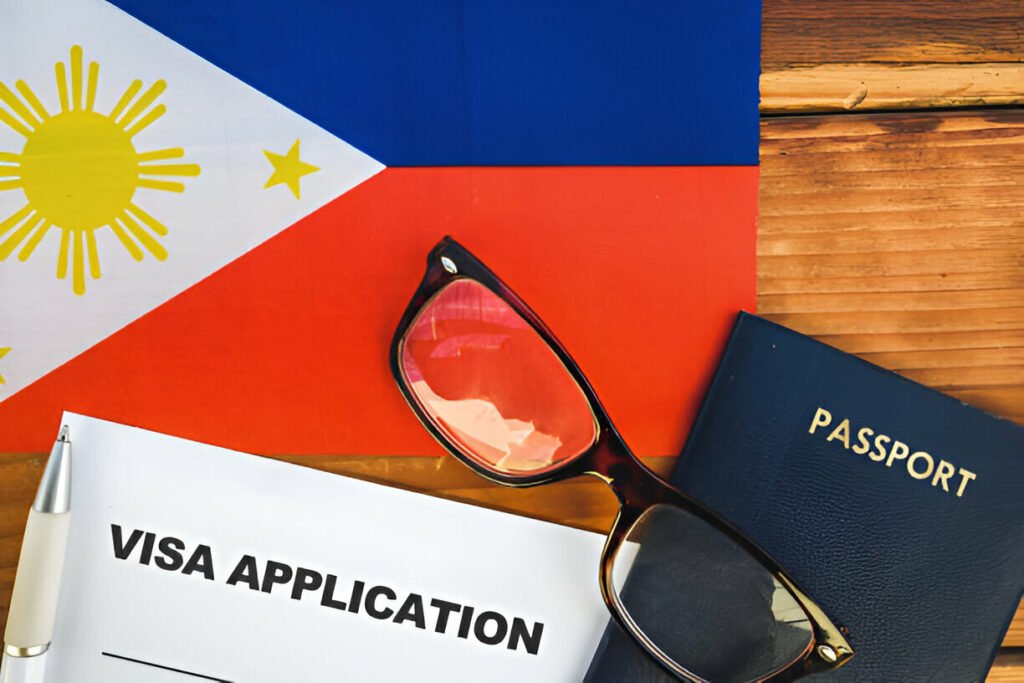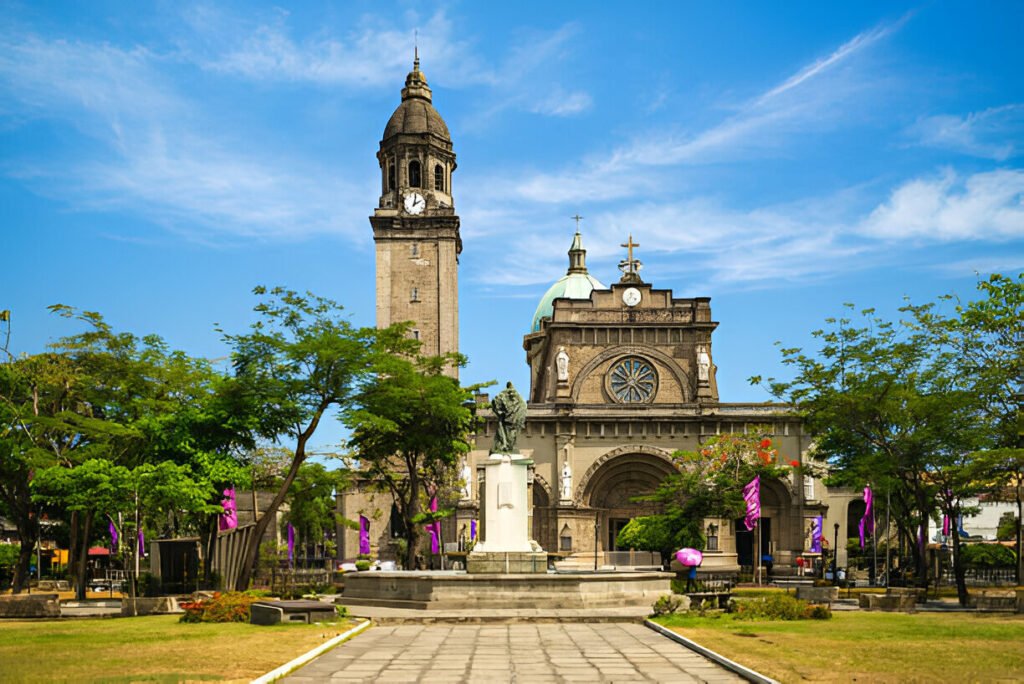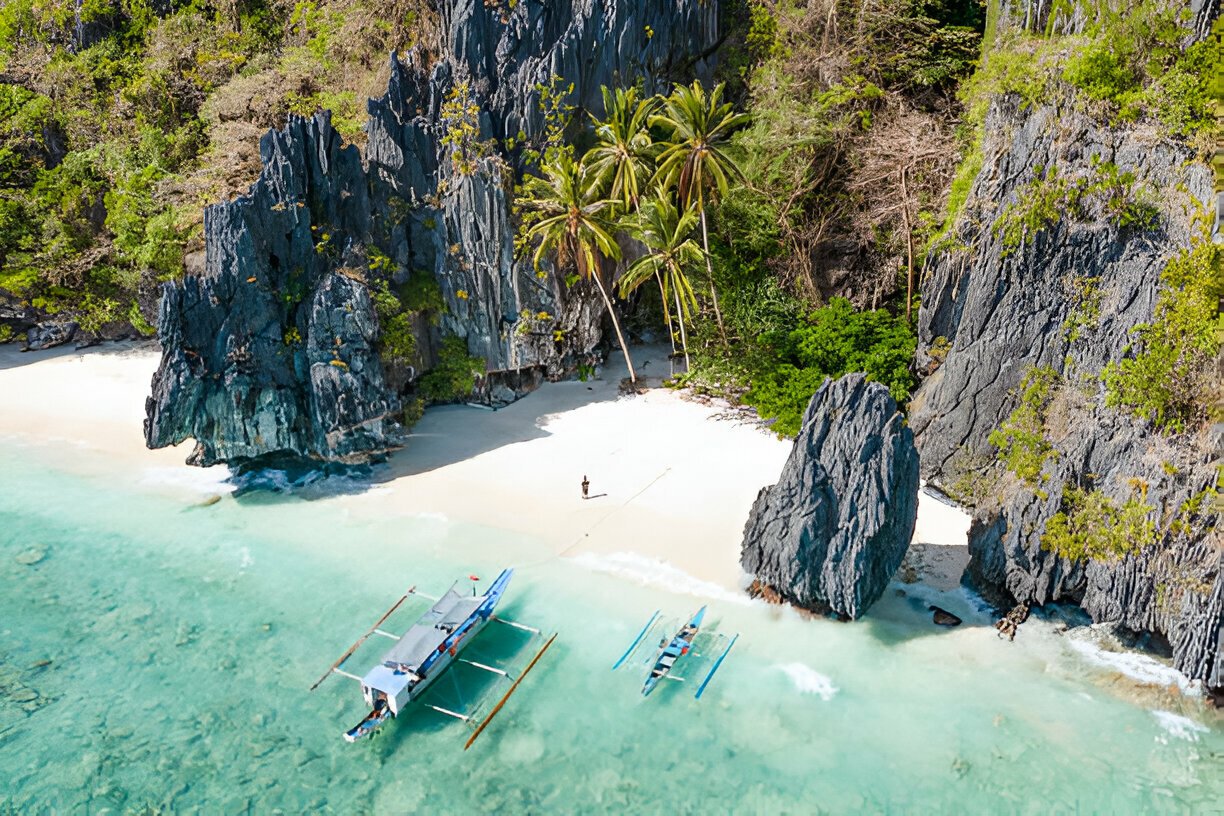Dreaming of working from sandy beaches, bustling cities, or tranquil mountain escapes while sipping on fresh coconut water? Welcome to the life of a Digital Nomad Philippines. Known for its affordability, vibrant culture, and stunning islands, the Philippines is rapidly becoming a hotspot for remote workers.
This guide will walk you through why this tropical paradise is the perfect destination for digital nomads and how to make your move seamlessly, covering everything from visa requirements to the best cities to live and work in.
Why Choose the Digital Nomad Philippines?

Affordable Cost of Living
The Philippines offers a significantly lower cost of living compared to Western countries. Imagine renting a modern one-bedroom apartment in Cebu City for as low as $300 per month or enjoying a meal in a local restaurant for $3. Your hard-earned income can go a long way here, allowing you to save while living comfortably.
English-Speaking Population
English is widely spoken throughout the Philippines, making it easy to communicate, work, and form connections with locals. Whether you’re haggling at a market or working from a café, you won’t need to struggle with a language barrier.
Tropical Scenery and Warm Weather
With its world-famous beaches, lush landscapes, and warm climate year-round, the Philippines offers a tropical escape unlike any other. Whether you’re exploring the chocolate hills in Bohol or island-hopping in Palawan, natural beauty is always just a short trip away.
Growing Digital Infrastructure
The country’s internet infrastructure has significantly improved in recent years, with major cities and tourist destinations offering reliable high-speed connections. Coworking spaces and digital hubs are popping up across the country, catering to the growing community of remote workers.
Friendly Local Culture
Filipinos are known for their hospitality and cheerful disposition. From the moment you land, you’ll be treated with warmth and kindness that makes settling in easy and enjoyable.
Legal Requirements and Visas

Before packing your bags, it’s important to understand the country’s visa requirements to ensure a hassle-free stay.
Types of Visas for Digital Nomads
- Tourist Visa: Best for short stays, these visas are usually valid for 30 days and can often be extended up to six months.
- Visa Extensions: You can easily extend your tourist visa by visiting the Bureau of Immigration.
- Special Resident Retiree’s Visa (SRRV): Not just for retirees, this visa allows long-term stays and might be worth considering if you plan to live in the Philippines for an extended period.
Legal Limitation
While working remotely for a foreign company is generally permissible, ensure that your remote work does not violate local regulations. Seek legal advice if you’re unsure.
Best Cities and Islands for Digital Nomads
Cebu City
- Why it’s great: The perfect blend of urban convenience and beach proximity.
- Internet speed: Reliable with options for fiber-optic connections.
- Must-know: Several coworking spaces like The Company Cebu cater to digital workers.
Manila

- Why it’s great: Ideal for networking and business opportunities.
- Internet speed: Among the best in the country.
- Must-know: Traffic can be intense; living close to your coworking space is recommended.
Dumaguete
- Why it’s great: Quiet, affordable, and has a thriving expat community.
- Internet speed: Reliable in most areas, but check with your accommodation provider.
Siargao
- Why it’s great: A haven for surfers and those who love island vibes.
- Internet speed: Generally slower but manageable at certain coworking spaces.
- Must-know: Great for a work-hard, play-hard lifestyle.
Baguio
- Why it’s great: Cool weather and a strong creative community.
- Internet speed: Reliable with the growing coworking scene.
Finding Accommodation
Finding the right accommodation is crucial, whether you’re staying for a month or a year.
- Short-term rentals: Platforms like Airbnb, Agoda, and Booking.com are excellent for securing rentals for a few weeks or months.
- Long-term rentals: Join local Facebook groups or work with local agents to find affordable, long-term housing.
- Cost guide:
- Basic studio apartment in the city center: $200–$400/month.
- Beachfront studio or villa in tourist areas: $600–$1,200/month.
Internet and Connectivity
- Mobile Providers:
- Globe, Smart, and DITO are the top mobile providers, each offering affordable SIM cards and data packages.
- Depending on data requirements, plans typically range from $10 to $30/month.
- Coworking Spaces:
- Available in major cities and hotspots, providing reliable internet and networking opportunities.
- Backup Solutions:
- Pocket WiFi devices and prepaid mobile data are lifesavers for remote work.
Cost of Living in the Philippines
Here’s a rough breakdown of monthly expenses for a single person living comfortably in the Philippines as a digital nomad.
- Rent (1-bedroom apartment): $300–$700
- Food and dining out: $150–$300
- Transport (Grab/taxis): $30–$50
- Internet and mobile data: $20–$50
- Leisure (gym, activities, trips): $100–$200
Estimated total monthly cost: $600–$1,500, depending on your lifestyle.
Earning While Living in the Philippines
One of the joys of being a digital nomad is the flexibility to earn from virtually anywhere.
Remote Job Ideas
- Freelancing (writing, graphic design, web development)
- E-commerce selling through platforms like Shopify
- Content creation and YouTube monetization
- Teaching English online
Platforms to Kickstart Your Remote Journey
Check out Upwork, Fiverr, and Toptal for freelance gigs.
Banking and Payments
Set up with financial tools like PayPal, Wise, or GCash to manage international payments seamlessly.
Staying Safe and Healthy
- Health Insurance: Opt for travel health insurance tailored for digital nomads. Companies like SafetyWing and World Nomads are popular choices.
- Safety Tips:
- Avoid walking alone at night in unfamiliar places.
- Keep your valuables secure at all times.
Cultural Tips and Etiquette
- Learn a few basic phrases in Filipino/Tagalog. A simple “Salamat” (Thank you) goes a long way!
- Always greet with a smile and be polite to locals.
- Dress modestly when visiting religious or cultural sites.
Digital Nomad Community and Networking
Meet other like-minded individuals and expand your network.
- Facebook Groups:
- Digital Nomads in the Philippines
- Expats Manila
- Coworking Communities:
- Commune in Makati City.
- KMC Solutions’ coworking spaces across the country.
- Forums and Meetups:
- InterNations hosts regular events for expats and digital nomads.
Nail the Nomad Life
Becoming a digital nomad in the Philippines offers adventure, affordability, and the freedom to work from paradise. Whether you’re surfing in Siargao, networking in Manila, or relaxing in Dumaguete, this guide equips you with everything you need to hit the ground running.
Want to learn more or get personalized advice? Start by joining digital nomad forums or connecting with experienced travelers online. Your dream of remote work under the lush palms awaits!
FAQs About Digital Nomad Philippines
Do I need a visa to work remotely in the Philippines?
Yes, most nationalities can enter on a tourist visa and extend it for several months. However, there’s no official “digital nomad visa” yet, so you’re technically working remotely for a foreign company while residing temporarily.
How long can I stay in the Philippines on a tourist visa?
You can typically stay up to 30 days visa-free (depending on your country) and extend it every 1-2 months, up to 36 months for most nationalities. Always check with the Philippine Bureau of Immigration.
Is the internet reliable in the Philippines?
It depends on the location. Cities like Manila, Cebu, and Davao have stable fiber internet. In remote islands, mobile data or pocket WiFi might be more reliable. Always test the connection before booking long-term stays.
Is the Philippines safe for digital nomads?
Yes, most areas are safe for travelers and remote workers. Just take normal precautions, avoid isolated areas at night, secure your belongings, and stay updated on local news.
Can I meet other digital nomads in the Philippines?
Yes! Coworking spaces, Facebook groups, and local nomad meetups in places like Cebu, Siargao, and Makati are great for networking and socializing.
Hi there. My name is Abbas Khan. I’m passionate about finding smart ways to save and make money from anywhere in the world.
Learning how to earn remotely and manage my finances gave me true freedom, and now I want to help you do the same.
Join me as I explore money-saving hacks, income ideas, and tips to build a flexible, location-independent lifestyle you’ll love.


1 thought on “How to Become a Digital Nomad Philippines”